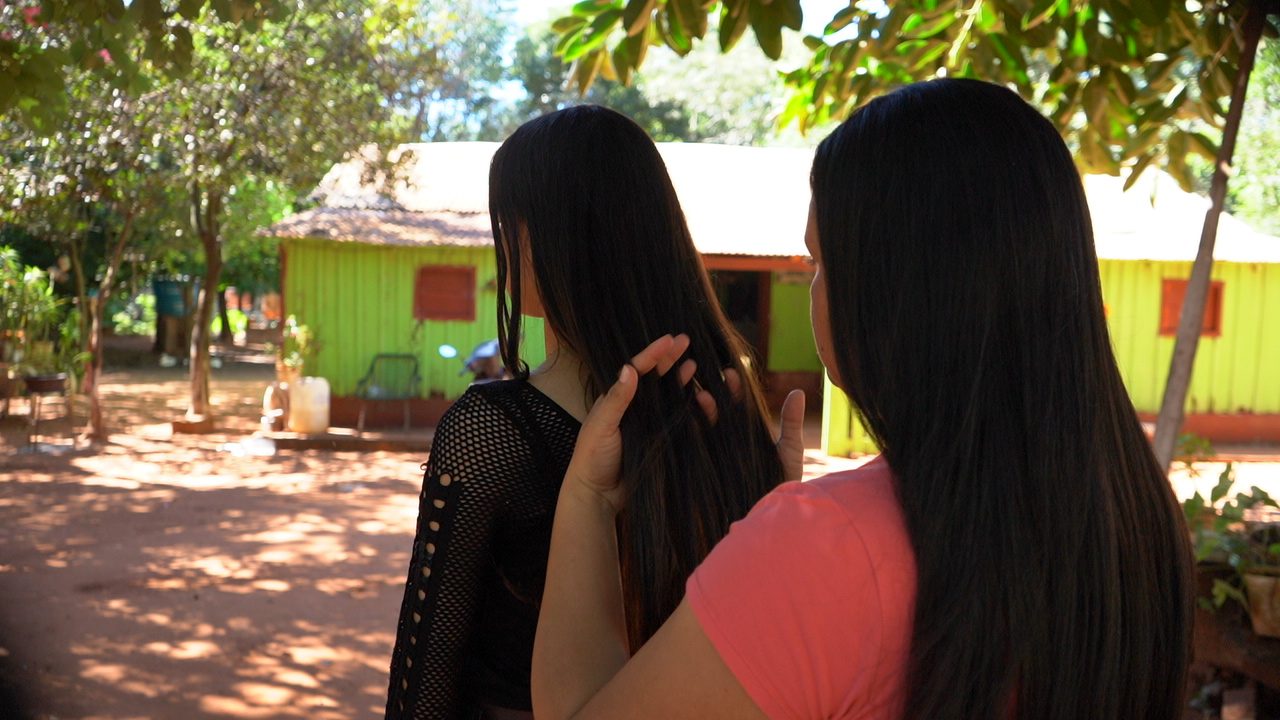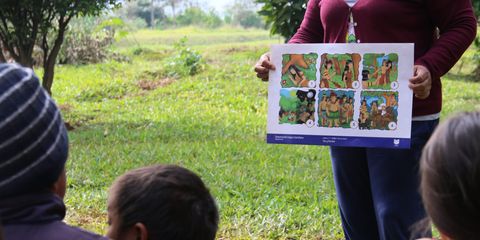Patricia, who became a mother at 16, has returned to her studies and supports young women in her community by being an open space where they can talk about difficult issue they cannot discuss with their families. Patricia explains how instrumental education and information on sexual health are in breaking the cycle of young motherhood.

As Patricia* looks fondly at her 16-year-old daughter, she finds it hard to believe that she was pregnant with her at the same age she is now. “I still think of her as a child, but I remember that I was exactly her age when I became pregnant,” she recalls. In Paraguay, 2 teenage girls aged 15 to 19 give birth every hour.
Early motherhood
From Caaguazú, a department located in the centre of the country, Patricia was raised in an environment where sex education was nonexistent, so she grew up lacking any knowledge about family planning or contraceptive methods. Falling pregnant at 16 meant she had to face the prospect of becoming a mother while still a child herself.
“I was afraid of getting pregnant. My boyfriend told me that nothing would happen, and I didn’t know there were ways to prevent pregnancy or how to take care of myself. About two months after we started having sex, I realised I was pregnant,” explains Patricia.
“About two months after we started having sex, I realised I was pregnant.”
Patricia
Still a teenager and a couple of years away from reaching adulthood, Patricia had to set aside her studies and confront motherhood head on. “I was ashamed because no one from my school was pregnant, so I stopped studying,” she says.
After giving birth to her daughter, the relationship with her partner broke down as he started mistreating her. When her child was 2 years old, Patricia decided to migrate to Brazil in search of better job opportunities to support her family.
The decision to leave her daughter in the care of her grandparents and uncles filled Patricia with pain, and each time she returned to visit, the goodbyes were emotionally intense for both her and her daughter.
Almost 2 years later, Patricia returned to Paraguay and was reunited with her daughter. She resumed her education and started studying physiotherapy with the support of her siblings who helped look after her daughter while she was at college.
Education as a key element of change
Now 32, she is determined not to let her daughter or any other girl go through the same experience of teenage pregnancy. Today, she serves as a role model for girls in her village who often come to her to speak about difficult issues that they feel they can’t share with their own families.
“My daughter’s friends come to me when they have worries, and I try to advise them,” says Patricia who explains that she wants to break the cycle of early motherhood which is normalised in her community. “My mother also became a mother when she was still a teenager.”
Patricia says the main issue causing the high rate of teenage pregnancies in Paraguay is the lack of sexual and reproductive health information for young people. “Sex education was almost nonexistent for my generation, as well as for those who came before.”
“Sex education was almost nonexistent for my generation, as well as for those who came before.”
Patricia
Plan International is working in Caaguazú to provide training and access to quality sexual health services in order to reduce the number of teen pregnancies in the region. By providing adolescents with the right information and tools, they are able to make informed decisions about their sexuality and family life.
Patricia’s daughter Marcela* now plays an active role in Plan International’s Girls Get Equal campaign which calls for power, freedom and representation for girls and young women and promotes girls’ participation and leadership in all aspects of society.
“My plan is for her to study traumatology and for us to work together, but I know she will study what she likes, and I will fully support her with all the resources I have,” says Patricia determinedly.
*Names have been changed to protect identities.


